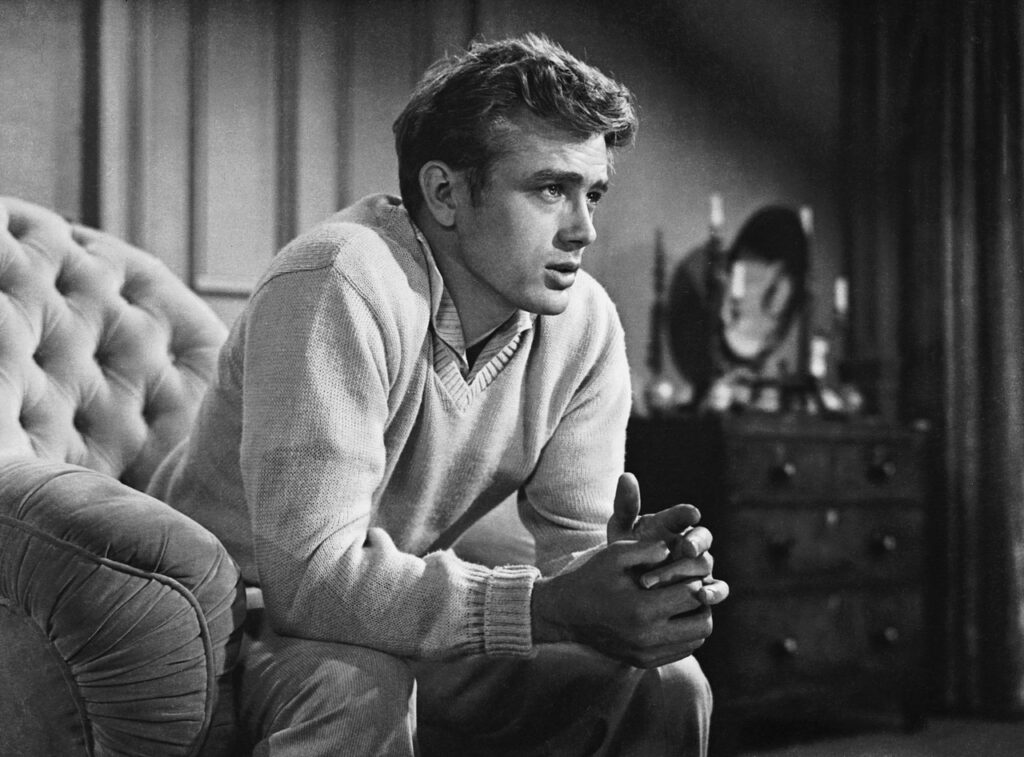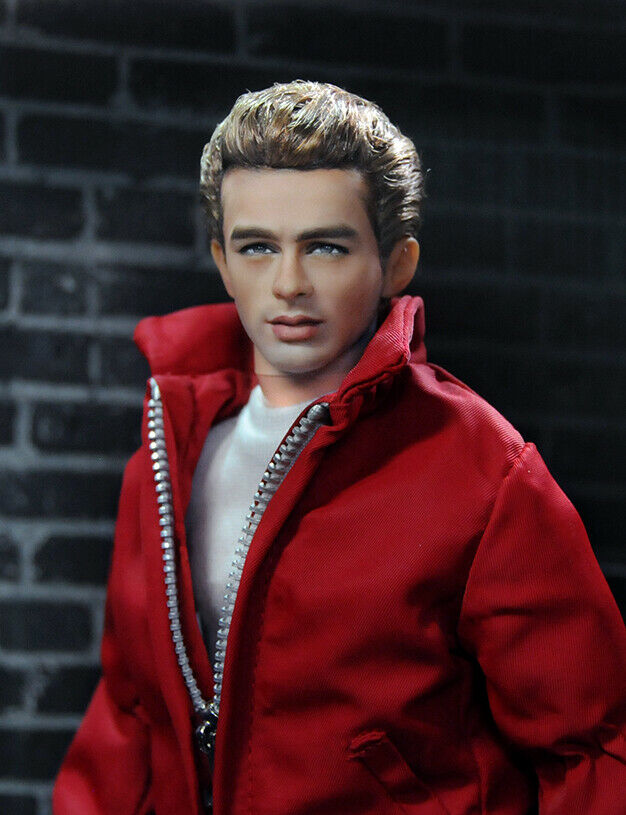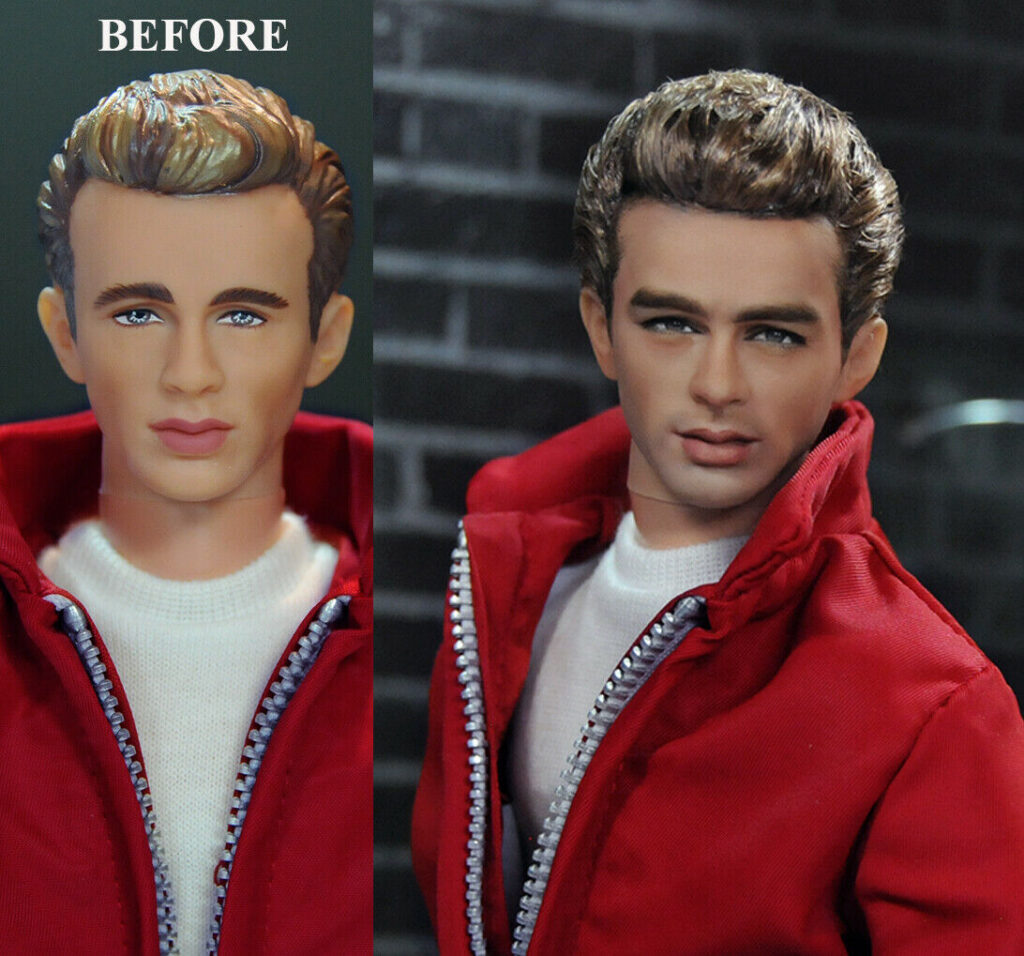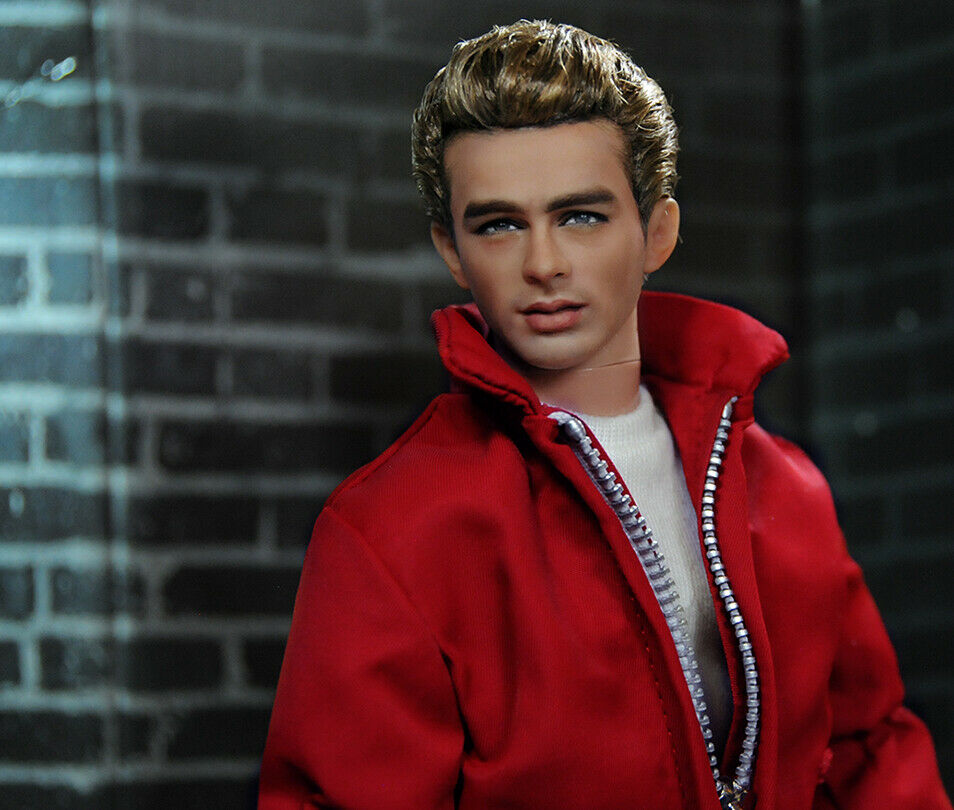
From Wikipedia: James Byron Dean (February 8, 1931 – September 30, 1955) was an American actor. He is remembered as a cultural icon of teenage disillusionment and social estrangement, as expressed in the title of his most celebrated film, Rebel Without a Cause (1955), in which he starred as troubled teenager Jim Stark. The other two roles that defined his stardom were loner Cal Trask in East of Eden (1955) and surly ranch hand Jett Rink in Giant (1956).

Cinema and television
American teenagers of the mid-1950s, when Dean’s major films were first released, identified with Dean and the roles he played, especially that of Jim Stark in Rebel Without a Cause. The film depicts the dilemma of a typical teenager of the time, who feels that no one, not even his peers, can understand him. Humphrey Bogart commented after Dean’s death about his public image and legacy: “Dean died at just the right time. He left behind a legend. If he had lived, he’d never have been able to live up to his publicity.”[91]
Joe Hyams says that Dean was “one of the rare stars, like Rock Hudson and Montgomery Clift, whom both men and women find sexy”.[92] According to Marjorie Garber, this quality is “the undefinable extra something that makes a star”.[93] Dean’s iconic appeal has been attributed to the public’s need for someone to stand up for the disenfranchised young of the era,[94] and to the air of androgyny that he projected onscreen.[95]
Dean has been a touchstone of many television shows, films, books and plays. The film September 30, 1955 (1977) depicts the ways various characters in a small Southern town in the US react to Dean’s death.[96] The play Come Back to the Five and Dime, Jimmy Dean, Jimmy Dean, written by Ed Graczyk, depicts a reunion of Dean fans on the 20th anniversary of his death. It was staged by the director Robert Altman in 1982, but was poorly received and closed after only 52 performances. While the play was still running on Broadway, Altman shot a film adaptation that was released by Cinecom Pictures in November 1982.[97]

On April 20, 2010, a long “lost” live episode of the General Electric Theater called “The Dark, Dark Hours” featuring Dean in a performance with Ronald Reagan was uncovered by NBC writer Wayne Federman while working on a Ronald Reagan television retrospective.[98] The episode, originally broadcast December 12, 1954,[99] drew international attention and highlights were featured on numerous national media outlets including: CBS Evening News, NBC Nightly News, and Good Morning America. It was later revealed that some footage from the episode was first featured in the 2005 documentary, James Dean: Forever Young.[100]
James Dean’s estate still earns about $5,000,000 per year, according to Forbes magazine.[101] On November 6, 2019, it was announced that Dean’s likeness will be used, via CGI, for a Vietnam War film called Finding Jack, based on the Gareth Crocker novel. The movie will be directed by Anton Ernst and Tati Golykh and another actor will voice Dean’s part.[102] Although the directors obtained the rights to use Dean’s image from his family, the announcement was met with derision by people in the industry.[102][103]
After his death in a car crash,[1] Dean became the first actor to receive a posthumous Academy Award nomination for Best Actor, and remains the only actor to have had two posthumous acting nominations.[2] In 1999, the American Film Institute ranked him the 18th best male movie star of Golden Age Hollywood in AFI’s 100 Years…100 Stars list.[3]










